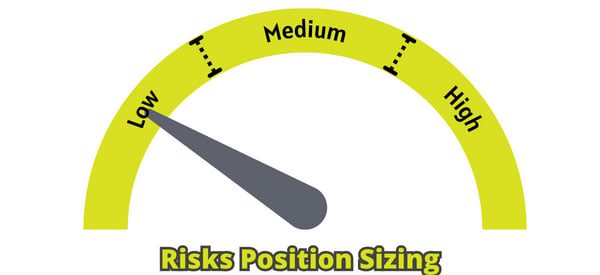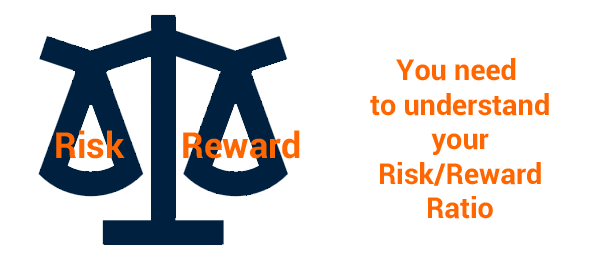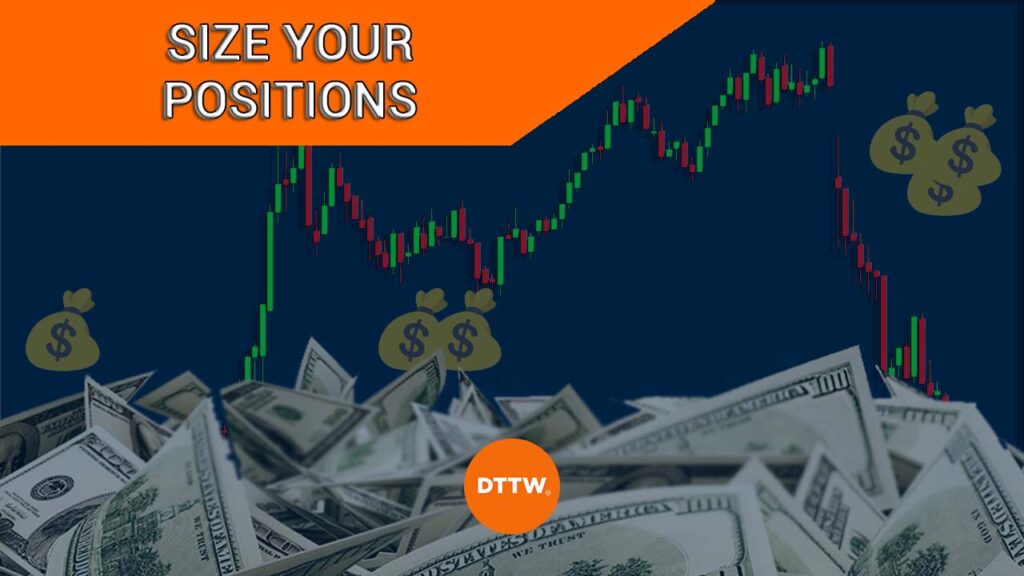Risk management is an important aspect of any investor or trader. It is a strategy that helps people ensure that they are maximizing their positions while reducing the amount of risk they are taking.
One of the most important approaches to risk management is known as position sizing. Why is this so relevant?
Many traders are scared of losing money, therefore they get biased by their emotions. This approach allows traders to mitigate bias and other psychological traps.
In this article, we will look at what it means to evaluate the size of your trade and how you can use this strategy well.
Table of Contents
What is position sizing?
“Limit your size in any position so that fear does not become the prevailing instinct guiding your judgment.”
Joe Vidich
The quote mentioned above should be your guiding light when thinking about position sizing. The quote was made by Joe Vidich, a hedge fund manager who has an average annual return of more than 20%.
Position sizing refers to the situation where you open trades of the right size. The idea behind this is relatively simple. One of the best ways of making a lot of money is to ensure that you open large trade sizes.
For example, if you have a $100,000 account, you can buy shares of a company worth $10,000 or the entire $100k. In this case, if your trade goes on well, the initial trade will be more profitable than the initial one.
However, if the trade goes on south, the second trade will lead to a bigger loss. In some cases, it will lead to a complete shuttering of your trading account.
Therefore, in position sizing, the goal of a trader is to ensure that they balance between the risk of making substantial losses and that of maximizing profits in the market.

What happens if I mis-size my trades?
There are several reasons why this quote on position sizing is so important. Having improper position sizing can lead to several errors that negatively plague your performance. And We do not believe that you want to undermine your efforts.
Emotions could overcome logic
First, it helps to ensure that you are not engulfed in panic selling. Panic selling is a situation where you rush to exit your position in haste when there is a sudden change in market sentiment.
When your positions are positioned well, there is a likelihood that you will not be worried too much about losing money.
Partial profits
Second, the quote will help you prevent closing premature trades. It is a common situation where people close their positions too early.
For example, you can open a buy trade at $12 and hope to exit it when it moves to $15. However, because of your fear, you might close the trade at $12.5 when you have not realized all your profits.
Related » How to Hold Your Trading Profits Longer
High volatility exposure
Third, position sizing will help you stay away from too much volatility. When you are positioned well, you will typically not fear getting caught up in too much volatility.
Volatility is a profit-driver for a trader, and it can bring huge returns… but only if our trades go as we had hoped! Improper management of your positions can also have harmful effects on portfolio diversification.
What makes position sizing so powerful
A common question among traders is the best strategy to position your trades well. The answer to this question depends on a number of factors.
Your account size
First, it depends on the size of your account. In most cases, if you have a small account, it means that you should ensure that you are are implementing small trades to help preseve your account.
For example, assume that you have a $5,000 account and that you are not using leverage. In this case, if a trade goes goes negative and you lose 50%, it means that your account will have $2,500 left. With such a small account, your chances of recovering the money are difficult.
Related » How to Become a Successful Trader Starting Small
On the other hand, if you have a $50,000 account and you go down by 50%, you will still have $25,000 to trade with.
This explains why Bill Ackman was able to recover his funds after losing over $4 billion when his Valeant Pharmaceuticals trade went south.
Therefore, if you have a small account, it is usually recommended that you open small trades as you grow them. In this case, you will not make a lot of money. However, it also means that you will not be able to lose a lot of money as well.
Your risk/reward ratio
The other thing that will often impact your position sizing is the risk/reward ratio. This is a ratio that looks at the amount of risk you are taking in relation to the reward you are expecting.
As a trader, you should journalize all your trades. Doing this will make it simple for you to calculate your win and loss ratio.

That ratio will make it easier for you to understand the performance of your strategy. Also, it will help you determine how to position your trades well.
For example, if you typically lose money more times than you make it, you should consider increasing your trade sizes.
Your confidence level
The other thing you should consider when adjusting your trade size is is your confidence level. This means that you should increase the size of your trades when you are highly confident about a trade.
For example, if you believe that the trade will be profitable, you should consider opening a larger size. A good example of this is when an asset is moving in a bullish trend.
On the other hand, you should limit the sizes of your trade when you are waiting for a breakout. In this case, there is always an uncertainty about whether the asset will have a breakout or not. Therefore, you should always ensure that your trade sizes.
Your leverage
Finally, you should consider the size of your leverage when determining the trade size. If you are using too much leverage, you should ensure that your trade sizes are relatively small.
When you combine too much leverage and a higher position size, there are chances that you will lose more money if your trades are not profitable.
Summary
In this article, we have looked at the concept of position sizing and why it is important. We have also looked at some of the things that will help you position your trades well.
In most cases, these tips will hep you a great deal in portfolio manaagement and overall trading.



